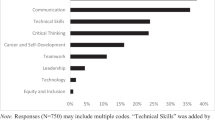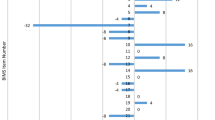Abstract
This paper illuminates the experiences of beginning teachers using a participatory perspective approach and drawing on some of these teachers’ perceptions. We place the ‘subject’ of workplace learning research centrally in understanding the relatedness between workplaces and novice employees/trainees. This paper builds on previous work by the authors using semi-structured interviews with 17 beginning teachers in 19 schools that aim to better understand issues associated with beginning teacher retention. This study explores an application of a framework for evaluating workplaces as from expansive to restrictive learning environments, whilst examining individuals’ responses to and agency in these environments. In addition, these teachers’ personal networks were explored to idedntify how they shaped the teachers’ engagement with workplaces. This analysis revealed networks both internal and external to their schools, and hence a broader view of workplace than is often proposed. Together these analyses allowed an examination of the relatedness between individual beginning teachers and the schools they experienced. This paper identifies the significance of ontogeny and expectation that individuals bring to the workplace, along with individuals exhibiting different agency. These beginning teachers indicate how individuals can be proactive in creating more expansive learning environments for themselves through the utilisation of personal networks, even when these are not offered. This finding may have implications for beginning teachers to re-evaluate their potential to become empowered as they begin their careers.




Similar content being viewed by others
Notes
The Duke of Edinburgh award scheme is a national scheme run for young people, often in schools, in which they need to show commitment to and development of community, personal and self-sufficiency skills.
Supply teaching in the UK is where teachers are bought in, often via a personnel agency, to cover teaching due to staff absence.
References
Amin, A., & Roberts, J. (2008). Knowing in action: Beyond communities of practice. Research Policy, 37(2), 353–369.
Beckett, D., & Hager, P. (2000). Making judgments as the basis for workplace learning: towards an epistemology of practice. International Journal of Lifelong Learning, 19(4), 300–311.
Biesta, G. (2008) Learning Lives: learning, identity and agency in the life course. Available online at: http://www.learninglives.org/ (accessed September 2009).
Billett, S. (2001). Learning through work: workplace affordances and individual engagement. Journal of workplace learning, 13(5), 209–214.
Billett, S. (2006). Constituting the workplace curriculum. Journal of curriculum studies, 38(1), 31–48.
Billett, S. (2008). Learning throughout working life: a relational interdependency between personal and social agency. British Journal of Educational Studies, 56(1), 39–58.
Billett, S. (2009). Enacting, remaking and transforming work: A socio-personal explanation, 6th Researching Work and Learning conference. Copenhagen: Roskilde University.
Burt, R. S. (2001). Structural holes versus network closure as social capital. In N. Lin, K. Cook, & R. S. Burt (Eds.), Social capital (pp. 31–56). New York: Aldine de Gruyter.
Carmichael, P., Fox, A., McCormick, R., Procter, R., & Honour, L. (2006). Teachers’ networks in and out of school. Research Papers in Education, 21(2), 217–234.
Cornelissen, J., Delios, A., & Floyd, S. W. (2006). Limits to communities of practice. Journal of Management Studies, 43(3), 621–622.
Eraut, M. (2007). Learning from other people in the workplace. Oxford Review of Education, 33(4), 403–422.
Evans, K., Hodkinson, P., Rainbird, H., & Unwin, L. (2006). Improving Workplace Learning. Abingdon: Routledge.
Fox, A., Deaney, R., & Wilson, E. (2010). Examining beginning teachers’ perceptions of workplace support. Journal of Workplace Learning, 22(4), 212–227.
Fox, A., McCormick, R., Procter, R., & Carmichael, P. (2007). The design and use of a mapping tool as a baseline means of identifying an organisation’s active networks. International Journal of Research & Method in Education, 30(2), 127–147.
Fox, A., & Wilson, E. (2009). Support our networking and help us belong!: listening to beginning secondary school science teachers. Teachers and Teaching: Theory and Practice, 15(6), 701–718.
Fessler, R. (2001). Dynamics of Teacher Career Stages. In T. R. Guskey & M. Huberman (Eds.), Professional development in education: new paradigms and practices (pp. 171–192). New York: Teachers College Press.
Granovetter, M. (1973). The strength of weak ties. American Journal of Sociology, 78(6), 1360–1380.
Granovetter, M. (1983). The strength of weak ties: a network theory revisited. Sociological Theory, 1, 201–233.
Hakkarainen, K., Palonen, T., Paavola, S., & Lehtinen, E. (2004). Communities of networked expertise: professional and educational perspectives. Amsterdam: Elsevier.
Hodges, D. C. (1998). Participation as dis-identification with/in a community of practice, Mind. Culture and Activity, 5(4), 272–290.
Hodkinson, P., & Hodkinson, H. (2003). Individuals, communities of practice and the policy context: school-teachers learning in their workplace. Studies in Continuing Education, 25(1), 3–21.
Hodkinson, P., & Hodkinson, H. (2004). The significance of individuals’ dispositions in workplace learning: A case study of two school-teachers. Journal of Education and Work, 17(2), 167–182.
Hoekstra, A.-M., Beijard, D., Brekelmans, D., & Korthagen, F. (2007). Experienced teachers’ informal learning from classroom teaching. Teachers and teaching: theory and practice, 13(2), 189–206.
Hoekstra, A.-M., Brekelmans, D., Beijard, D., & Korthagen, F. (2009). Experienced teachers’ informal learning: Learning activities and changes in behavior and cognition. Teaching and Teacher Education, 25(5), 663–673.
Lave, J., & Wenger, E. (1991). Situated learning: legitimate peripheral participation. Cambridge: Cambridge University Press.
Lieberman, A. (2000). Networks as Learning Communities—shaping the future of teacher development. Journal of Teacher Education, 51, 221–227.
Mansvelder-Longayroux, D. D., Beijaard, D., & Verloop, N. (2007). The portfolio as a tool for stimulating reflection by student teachers. Teaching and Teacher Education, 23(1), 47–62.
McCormick, R., Carmichael, P., Fox, A. & Procter, R. (2010) Researching and Understanding Educational Networks (Abingdon, Oxon, Routledge in association with the European Association for Research on Learning and Instruction)
McLaughlin, C., Black-Hawkins, K., McIntyre, D., & Townsend, A. (2008). Networking practitioner research. London: Routledge.
Nardi, B. A., Whittaker, S., & Schwarz, H. (2000) It's not what you know, it's who you know: work in the information age, First Monday, 5(5) available at: http://firstmonday.org/htbin/cgiwrap/bin/ojs/index.php/fm/issue/view/119
Wasserman, S., & Faust, K. (1994). Social network analysis: methods and analysis. Cambridge: Cambridge University Press.
Wenger, E. (1998). Communities of practice: Learning, meaning and identity. Cambridge: Cambridge University Press.
Wenger, E., McDermott, R., & Snyder, W. M. (2002). Cultivating communities of practice. Boston: Harvard Business School Press.
Wilson, E., & Demetriou, H. (2007). New teacher learning: Substantive knowledge and contextual features. Curriculum Journal, 18(3), 213–229.
Author information
Authors and Affiliations
Corresponding author
Appendix 1. Sources of School Support and Network Nodes
Appendix 1. Sources of School Support and Network Nodes
School / Term | In school | Beyond School Networks | ||||
|---|---|---|---|---|---|---|
| Ideas / Cognitive | Support / Social | Support/ Affective | Ideas / Cognitive | Support / Social | Support/ Affective |
Emma | ||||||
School E / Term 1 | None | New teachers Teaching assistants | None | Teachers in the family University tutor University Peers | Other PGCE students | Partner |
School C / Term 2 | Mentor and other teachers | Mentor and other teachers | Mentor | Teachers in the family University tutor University Peers | Other PGCE students | Partner |
School D / First Post | Middle leaders Colleagues | Colleagues | Middle leaders | Teachers in the family University tutor University peers | Other new teachers | |
Frank | ||||||
School B / Term 1 | Mentor and other teachers | Mentor and other teachers | Limited | University tutor University peers | Former outdoor pursuit colleagues Sporting teams PGCE peers Church activities | Parents (also teachers) |
School A / Term 2 | Mentor, other teachers and technicians | Mentor and other teachers in science and PE departments | Mentor and other teachers | University tutor University peers | Parents (also teachers | |
Dawn | ||||||
School A / Term 1 | Mentor and other teachers | Mentor and other teachers | Mentor and other teachers | University tutor University peers | Other PGCE students | Partner |
School F / Term 2 | None Self-initiated, cross-department collaboration | Other new teachers in the school IT technical support | Negative feedback | University tutor University peers | Other PGCE students | Family members University tutor |
Rights and permissions
About this article
Cite this article
Fox, A., Wilson, E. & Deaney, R. Beginning Teachers’ Workplace Experiences: Perceptions of and Use of Support. Vocations and Learning 4, 1–24 (2011). https://doi.org/10.1007/s12186-010-9046-1
Received:
Accepted:
Published:
Issue Date:
DOI: https://doi.org/10.1007/s12186-010-9046-1




